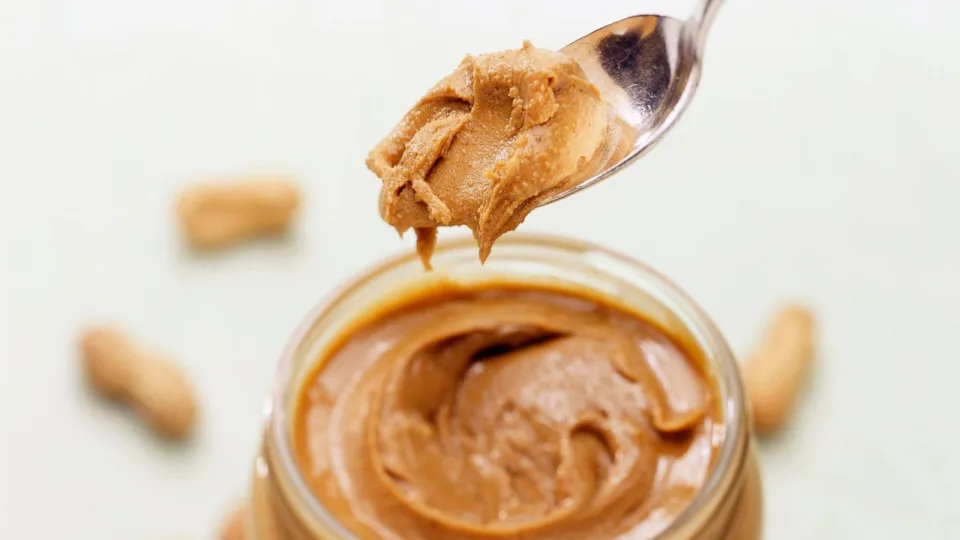A recent study conducted by the National Institutes of Health’s National Institute of Allergy and Infectious Diseases has found that introducing peanut products to children at a young age can significantly reduce the risk of developing a peanut allergy later in life. The study, published on Tuesday, revealed that regularly feeding infants and young children peanut products, such as thinned peanut butter, until the age of 5, was associated with a 71% decrease in peanut allergy rates among adolescents.
The study also highlighted that children who were exposed to peanut products by six months of age had a 75% reduced risk of developing a peanut allergy by age 5. Furthermore, by age 12, these children were four times less likely to develop a peanut allergy.

Interestingly, the study also indicated that even if a child stops consuming peanut products regularly after the age of 5, the reduced risk of developing a peanut allergy from early exposure remains. This research emphasizes the importance of introducing peanut products to children at a young age to potentially prevent the development of peanut allergies later in life.
The recent findings support previous research indicating that introducing potential food allergens at an early age reduces the chances of developing allergies later in life. This contradicts the recommendations made by doctors in the 1990s and early 2000s, which advised delaying the introduction of peanuts and other allergens until children were older. However, larger studies have since demonstrated that waiting actually increases the risk of allergic reactions. Dr. Jeanne Marrazzo, director of the NIH institute responsible for the study, stated that the new findings demonstrate that early exposure to peanut products offers long-term protection for children.
Marrazzo, in a statement announcing the study’s findings, emphasized that if widely implemented, this safe and simple strategy could prevent tens of thousands of cases of peanut allergy among the 3.6 million children born in the United States each year.
According to the American Academy of Allergy Asthma & Immunology, peanut allergies are one of the most common food allergies, affecting nearly 2% of adults and children in the United States. Allergic reactions to peanuts can be life-threatening.
Here are three key points for parents and caregivers to keep in mind when introducing peanut products to young children:
- Consult with a pediatrician
Parents and caregivers should consult with their child’s pediatrician before introducing them to foods containing peanuts. - Guidelines for children without eczema or food allergies
According to the guidelines from the NIAID, children without eczema or food allergies can have age-appropriate peanut-containing foods introduced into their diet at home starting around 6 months of age. - Early introduction can be beneficial
Research suggests that early introduction of peanut products can help prevent the development of peanut allergies in children. However, it is important to follow the guidance of a healthcare professional to ensure the safety and appropriateness of introducing peanuts to a child’s diet.
A recent report has found that two-thirds of pediatricians are not fully following guidelines on preventing peanut allergies in children. According to the guidelines, if a child has severe eczema or an egg allergy, they should only be fed peanut-containing foods after consulting with a healthcare provider. The child’s doctor may recommend allergy testing before introducing peanut-containing foods in a safe and controlled manner. However, for children with mild to moderate eczema, peanut allergy testing is not necessary. These children can start having age-appropriate peanut-containing foods in their diet around 6 months of age, as recommended by the National Institute of Allergy and Infectious Diseases (NIAID). Additionally, it is advised by pediatricians, such as Dr. Wendy Sue Swanson, to thin out peanut products when introducing them to infants.
“According to Swanson, when it comes to feeding your baby, it is important to create a texture and consistency that is easy and safe. This means thinning nut butters to avoid choking risks if you choose to use them. Additionally, parents can mix a small amount of peanut powder into purees like applesauce, but it is crucial to avoid giving whole peanuts or peanut pieces to children under the age of 4 due to the risk of choking.
If your baby has an allergic reaction to peanuts, there are certain symptoms to watch out for. Swanson explains that infants may experience hives, vomiting, or both. Other signs of an allergic reaction include facial swelling, difficulty breathing, wheezing, diarrhea, or even passing out.”
It is highly probable that symptoms will appear within minutes to two hours after a child ingests a peanut product.
If a mild allergic reaction, such as a rash, occurs, parents and caregivers should promptly get in touch with their child’s pediatrician. However, if they notice any other symptoms besides a rash, they should call 911 for immediate medical help.
